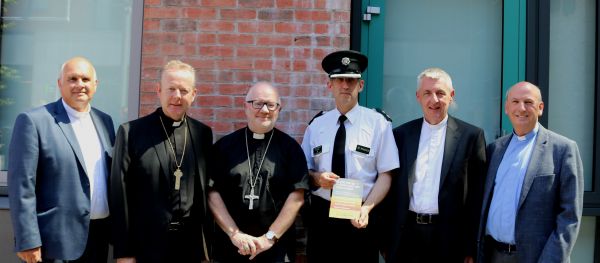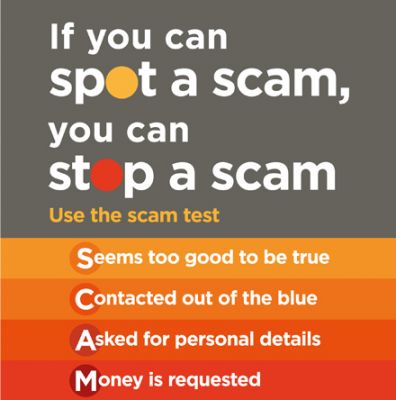 |
 |
News
Church of Ireland helping to prevent scams
It can sound so good. That email out of the blue offering a great holiday in the sun, the letter congratulating you on that big windfall, or the call inviting you to put your money into a lucrative new venture. And it’s very familiar too. In any year, most of us will be targeted with an attempt to scam us out of money but the good news is that with a little more caution, we can all spot scams and therefore stop them in their tracks.
The Church of Ireland, alongside the other main Churches is backing the Scamwise NI campaign to keep people in Northern Ireland safe from scams. In the Republic, fraudulent invoices, emails and phone calls are among the most common frauds reported to Gardaí.
A simple four-step test can help you to spot a scam if a cold caller gets in touch:
• Seems to be good to be true;
• Contacted out of the blue;
• Asked for personal details;
• Money requested.
The scam test was highlighted by publicity at the Armagh and Derry and Raphoe diocesan synods last autumn, following a series of meetings with the Church Leaders, and the message will be shared more widely this spring through social media and a PowerPoint slide being provided for parishes.
Archbishop Richard Clarke remarked: “It is shocking to learn of the sheer cynicism, deviousness and mean-mindedness that people apply into seeking to swindle others today, whether online, by phone, by post, or even by direct face-to-face contact on a doorstep. This makes it, for example, crucially important that everyone is aware of the dangers of engaging carelessly online, even with sites that look ‘safe’. It is equally important that people do not hesitate to contact the PSNI or the Gardaí if they believe that they are possibly being targeted by fraudsters.”
Scams target people of all ages, backgrounds and income levels and can have a devastating impact on those affected and their families. Indeed, a financial loss is often accompanied by deep embarrassment; the police are always keen to encourage victims to come forward and get the support they need which can help to overcome that sense of shame.
More information is available, in Northern Ireland, at www.nidirect.gov.uk/scamwiseni and www.facebook.com/scamwiseni and, in the Republic, from local crime prevention officers and An Garda Síochána’s website: www.garda.ie/en/crime/fraud
Remember if an offer sounds too good to be true, it probably is, but if you can spot a scam, you’ve got the power to stop it.
This article was first published in the Church of Ireland Gazette.

Church leaders with the PSNI Temporary Chief Superintendent Simon Walls.

A leaflet highlighting scams.